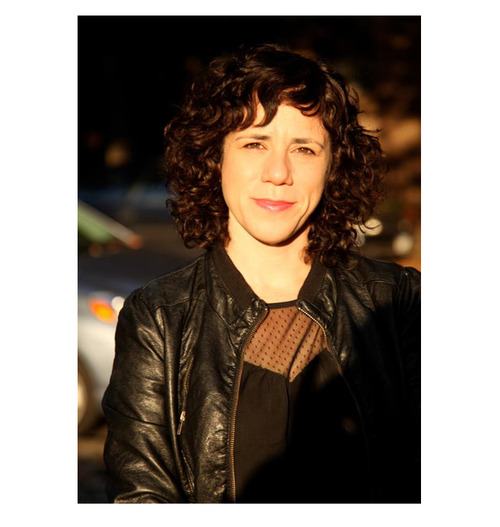
Jami Attenberg is someone I would consider “legit.” She is a writer through and through. She is the author of a collection of short stories, three novels, numerous essays and her work can be read in anywhere from old school punk/diy ‘zines to the New York Times. She sets out on tour this week to promote the paperback of her most recent book, The Middlesteins and you can keep up with her in real time online here: http://jamiatt.tumblr.com/ She used to drive herself across the country to do diy readings. Figured we’d ask her a couple q’s about that. Learn from her, she’s an example of a writer who actually handles her career correctly. Love, Nicolle
NICOLLE ELIZABETH: When did you first realize you were a writer?
JAMI ATTENBERG: I’ve just always written, and always considered myself a writer. I wrote my first story when I was five. There was nothing else I wanted to do or be. I went to college for writing, and I kind of messed around after college for a while, did a lot of drugs, moved around the country, and then I had a couple of jobs that I didn’t really love but were fine, and then when I was in my early 30s I got my shit together and started writing books.
NE: Do you think studying writing is needed to publish as an author?
JA: Studying writing to me means reading and also rewriting obsessively. That’s the best way to learn. I did my undergraduate work in writing but did not get an MFA. It seems like an MFA affords you the time to read and write, but getting that degree does not feel necessary to me. Although I wish I had the luxury of time to read and write like grad students do. That sounds pretty awesome. When I was writing my first book one of my friends was going to grad school at the same time and I heard a lot of stories about drinking, too. I feel like everyone was having affairs. I mean it sounds fun! I am all for having fun.
NE: Have you ever veto’d an edit from a publisher on your work or do you think it best to “go with the suggestions”?
JA: Writers have a job to do. Editors do, too. You have to stand ground and cede ground on a case by case basis. When an editor tells me something isn’t working and I still believe in it, I tend to think it just isn’t working hard enough. Often I’ll rewrite it to make it stronger. Usually we can find a middle...
You have reached your article limit
Sign up for a digital subscription and continue reading all new issues, plus our entire archives, for just $1.50/month.
Already a subscriber? Sign in




